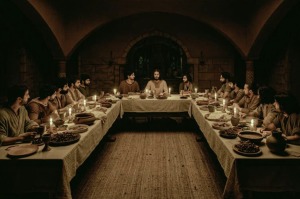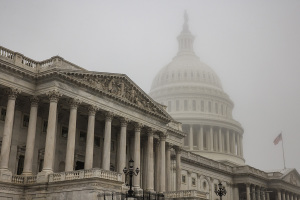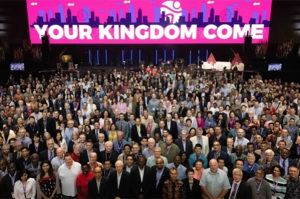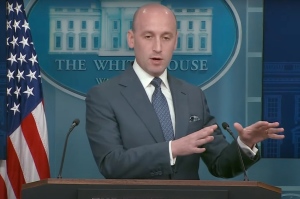Can Billy Graham Bring Hope to Millennials?
The Rev. Billy Graham doesn't mean as much to me as he has meant to many other Americans. I am 30 years old, and the lion's share of his ministry was accomplished in my parents' and grandparents' generation. While I have an almost indescribable respect for him, I've never met him and I cannot count myself among the 215 million individuals who have heard him preach in 185 countries around the globe. His significance in my life has been largely historical.
And you know what?
The same is true of most millennials I know. The stream of generations carries great figures past our shores and far downstream. The heroes and heroines of one generation fade as time passes, and unless we're intentional about preserving their legacy in the culture then they will be handed over to the historians.
I was reminded the other day, however, just how much I missed. I happened across a preview of a 30-minute program called "The Cross" that will air on the Fox News Channel Thursday night. The video includes what might very well be Billy Graham's final sermon, and it will air appropriately on the evening of his 95th birthday. I actually wept as I watched the program. It touched a deep nerve and moved me profoundly.
I was especially struck by Billy Graham's strategic decision to intertwine his own message with the powerful stories of (34-year-old) hip hop artist LeCrae and (32-year-old) rock star Lacey Sturm. They represent another generation of young leaders speaking passionately of their own encounters with Jesus Christ, testifying to the same truth Billy Graham has professed for decades. This clearly wasn't an accident. Graham, ever the evangelist, was putting in front of a new generation (one that could be his great, great, great grandchildren) the same message packaged in the language and media of the twenty-first century. Last week, when Reuters comically accused Graham of irrelevancy, they betrayed their own irrelevancy by discounting these two wildly popular music stars as "a couple of young musicians." Graham, in fact, picked one of the most popular Christians in music, and the Grammy award-winning LeCrae and Dove award-winning Lacey Sturm both have stories of redemption that couldn't be more relevant to our time.
Every millennial I know needs to see this program and hear its message. Graham's message isn't a nostalgic one for another time. It's a message for now, spoken by someone whose very life commands the attention of skeptics and believers alike. I understand why my parents and grandparents and leaders of all parties from all nations found in him the very incarnation of hope. I felt that hope as I watched.
Given one last time to speak, Billy Graham has chosen to address a new generation. This is a gift, and we will return the favor by spreading his message virally around the world. At Liberty University, hundreds of our students will staff phone banks to provide spiritual help and prayer to those who respond. This new generation will watch online or find their Twitter and Facebook feeds infused with Billy Graham's hope. No stadium can contain the millions who will be impacted by it in the digital world, and its relevancy is as time-tested and sure as the very longing for hope that it seeks to address.
No generation in American history needs hope more profoundly than the "millennial generation." We are the generation of 9-11, of Katrina and Sandy, of the Virginia Tech Massacre, and of multiple financial crises that have impoverished the masses and put our collective future in doubt. Most young Americans have never known an America not at war, and more than half of us have watched our parent's marriages crumble in divorce. Some might even say that faith itself is on a respirator, and even a cursory read of Facebook and Twitter reveals a kind of brokenness and depression that is surprisingly common among history's most technologically connected generation.
With the decline of religion in the public square, we have also witnessed a simultaneous rise in hopelessness.
Rick Warren, whose life has been greatly influenced by Billy Graham, is fond of saying that the world's greatest need is not for food or water, peace from conflict or even love. The greatest need of the world is "hope," and Billy Graham reminds us once more that all of the hope we will ever need is available to us for free.
I wondered as I watched "The Cross" what other hope I might have missed by being born at a different time, and I found my heart welling up in gratitude for Billy Graham for choosing to reach down from his generation to ours to remind us once more of a message that transcends history – that Jesus Christ is the hope of the world.





























